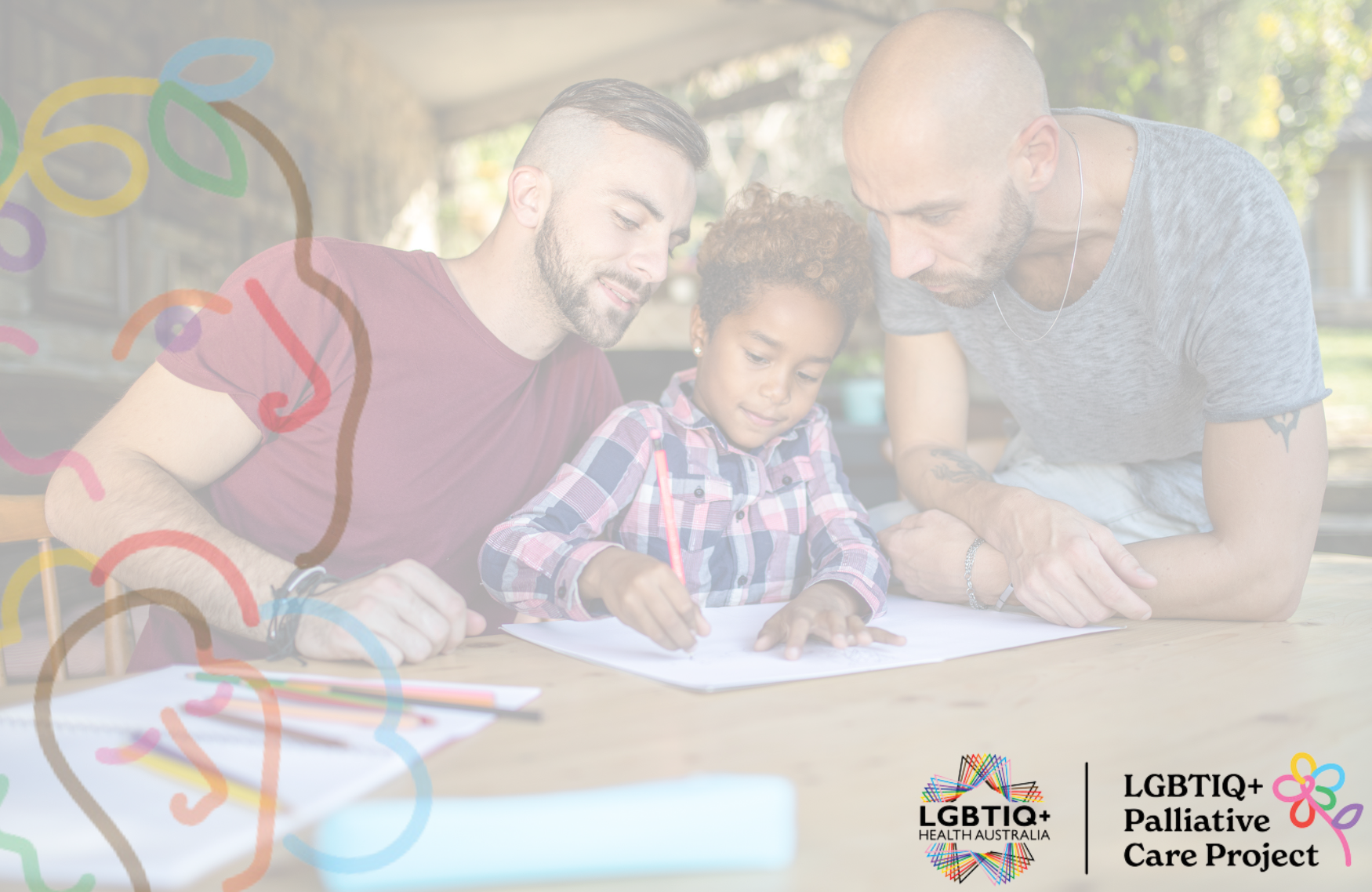New eLearning program to enable inclusive palliative care for LGBTIQ+ communities
New eLearning program to enable inclusive palliative care for LGBTIQ+ communities
Monday, March 18, 2024
An innovative online training program has been launched to help healthcare professionals deliver inclusive care for all Australians, with a specific focus on LGBTIQ+ communities.
“Palliative care often becomes binary-focused, which can inadvertently trigger past traumas. It’s crucial for health professionals to be mindful of this and strive to accommodate the unique needs of each patient” says Bronte Price, a passionate advocate for inclusive end of life care.
Developed in partnership with palliative care experts and co-designed with LGBTIQ+ communities across Australia, this new eLearning program by LGBTIQ+ Health Australia (LHA) and funded by the Australian Government, fills a critical gap identified by a national survey*.
The survey, which revealed that 94% of LGBTIQ+ respondents were concerned about the lack of inclusivity or support in some institutional healthcare settings. One respondent expressed, “The lack of capacity of healthcare professionals to understand the complex experiences, traumas and discrimination that people in LGBTIQ+ communities experience daily throughout their lives, and how this impacts the way that we perceive risk, is a real barrier to accessing palliative care.”
In completing all four modules, you will learn about:
- LGBTIQ+ communities and their specific healthcare needs
- End-of-life concerns and barriers to palliative care for LGBTIQ+ people
- How to have inclusive end-of-life conversations
- Strategies to support loved ones
- How to create welcoming and inclusive environments
“These modules have been co-designed with a passionate group of LGBTIQ+ healthcare workers and people with lived experience of palliative care. This collaborative process ensured that the modules are not just technically sound but also tailored to meet the needs of healthcare professionals, complementing their expertise with essential soft skills.”
The program has also received support from the Royal Australian College of General Practitioners and been recognised as continuing professional development (CPD) hours.
Dr. Ruth McNair, Honorary Associate Professor at the Department of General Practice, University of Melbourne, says it’s important that those working in healthcare systems open themselves to deliver care that is tailored and inclusive, “These modules challenge old notions, highlighting that true quality care means understanding individuals beyond a uniform approach.”
“Regardless of sexuality, past trauma, or existing barriers, everyone deserves and should receive appropriate, high-quality care,” Dr McNair says.
Register below to watch the ‘Embracing Inclusion’ PCA Connect webinar hosted by Palliative Care Australia and LGBTIQ+ Health Australia.
The LGBTIQ+ Inclusive Palliative Care eLearning is live now and ready to drive change. Access is free from the LGBTIQ+ Health Australia website.
Nurse Unit Manager at Tasmania Health Service, Jon DeLaine says as demand for palliative care grows and communities become more diverse, the need for a well-supported and resilient workforce is increasingly critical.
“The modules are key in changing all aspects of the healthcare system, particularly in addressing the biggest challenge for the palliative care workforce: becoming more patient-centred. As the demand for palliative care increases and our communities become more diverse and long-lived, it’s essential that we are better resourced,” he says.
Each module in the eLearning takes up to 90 minutes, and participants receive a certificate at the completion of each module, serving as evidence of CPD hours.
“Education and training are crucial in shifting towards patient-centred inclusive care. Equally important is a palliative care workforce that is diverse and reflects the society we live in,” Mr Price says.
